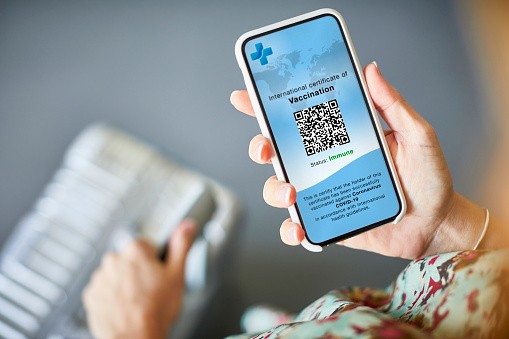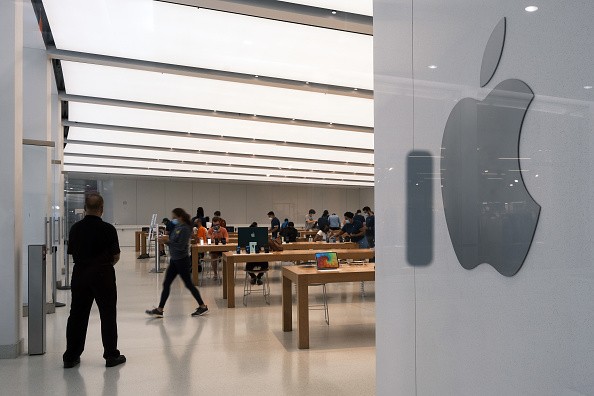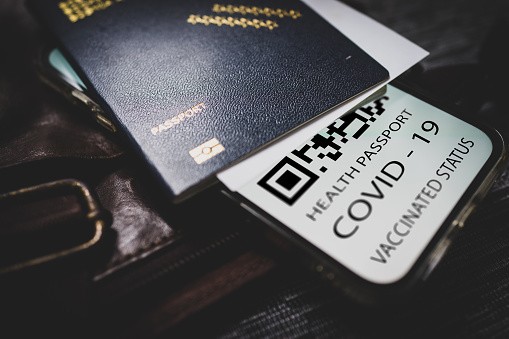Digital vaccine passports, or some kind of them, will have to be the norm for the next couple of years as the world recovers from the coronavirus pandemic. A few nations and sometimes even major cities are already implementing systems that use these passports, in an attempt to ensure that the virus doesn't spread even further.

But in order to be effective, digital vaccine passports must fulfill a few key criteria, according to The Conversation. They'd need to be securely linked to the travelers that use them, automatically comply with varying pandemic regulations, and be impossible to counterfeit. So, how would they work, exactly?
A good example would be the IATA (International Air Travel Authority)'s Travel Pass app, which airliners such as Qantas, Malaysia Airlines, Singapore Airlines, Air New Zealand, and Qatar Airways are already using. The IATA Travel Pass works in four steps:
Upon a person's first vaccination, data about it will be recorded by a component
The component will then transfer the individual's personal data, including their vaccination status, to the IATA database
The data will be verified by an authorized party
The data undergoes so-called digital cross-checking, where it will be checked to ensure that a specific government's travel guidelines will apply to any traveler leaving or entering the country. The cross-check will also make sure that every traveller will have the needed pre-requisites to enter their destination country.
To help calibrate the software, the IATA is compiling a global network of recognized vaccine providers, such as hospitals and clinics. These establishments will receive the vaccine-recording component which will log any patient's data onto the IATA database.
Coronavirus vaccine providers will then use the recording component to log the information about a vaccinated individual--say, the date and time at which they received their shots, as well as other identity details like passport numbers and addresses.
Read also : Serbian Hermit Living in Cave for 20 Years Learns About COVID-19 Pandemic, Gets Vaccinated
The Challenges of Implementing Digital Vaccine Passports
But of course, if implementing digital vaccine passports were that easy, the entire world would've been using the system already.
For one, verifying an individual's vaccination status from digital vaccine passports is proving to be tough in specific areas of the world, where businesses such as restaurants are starting to require them. A great example would be restaurants and other similar establishments in Montreal, Canada.
According to the owners of these restaurants, they're having issues with verifying the vaccination status of their patrons, and they're even reporting a 20% drop in business after digital vaccine passports started implementation.
Can Big Tech Help?
A CNN report last August revealed how big tech companies didn't really succeed when it came to contact tracing during the early days of the pandemic. But they could, however, lend their considerable talents and resources to the proper implementation of digital vaccine passports.
Samsung is one of the big tech companies that recently announced their plans for vaccine passports. Their plan involved all Galaxy device users now being allowed to load their inoculation records from an app called CommonHealth, and store their details in the Samsung Pay wallet. Apple has also implemented something similar a bit earlier than Samsung, with select users now allowed to store their EU-certified vaccine passports in their Apple Wallet.

These efforts from Big Tech show promise because it eliminates confusion among users from having to choose between so many available vaccine verification apps, which may or may not have enough security to protect their sensitive personal data.
What About Stopping Fake Passports?
Still, the implementation of these passport systems will always have problems with counterfeiters trying to slip through the cracks.
There's already a market for these fake inoculation passports around the world. And the worst part of it is, some cybersecurity loopholes that actually allow for a vaccine passport to be faked still haven't been fixed, according to ThreatPost. If global authorities want to take these passport systems seriously they first have to deal with the digital infrastructure that holds everything together--something that Big Tech can definitely help with.
For now, don't even think about buying a fake vaccine passport because it's already considered a crime. In the US, the FBI is cracking down on the sellers of these counterfeit documents by urging the public to not post photos of their vaccine cards on the internet, because counterfeiters can use these photos to commit fraud, reports ABC7News.
The world has been in the throes of the Coronavirus for too long. Don't add to it anymore by buying a fake vaccination passport, because it's not worth it.

This article is owned by Tech Times
Written by RJ Pierce




